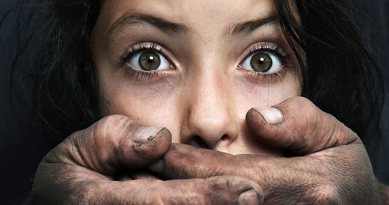
Team Herald
Panjim: Several NGOs working in the field of rescuing sex trade victims and their rehabilitation pan-India, have approached the National Human Rights Commission (NHRC) expressing their reservations into conceptualizing Commercial Sexual Exploitation (CSE) as ‘Informal labour/livelihood/sex work’.
In a letter to NHRC Chairperson Justice H L Dattu, the organizations cited NHRC Advisory dated October 7, 2020 establishing the institution’s intention to protect one of the most marginalized groups in society - women in commercial sexual exploitation. While the NGOs stated they appreciate the intention in spirit and concur with the support advised to these women, they expressed reservations against locating CSE as informal labour and ‘work’, for various reasons.
“Exchange of money for sex constitutes CSE, as it violates several human rights of the women, and involves heinous crimes such as rape, physical assault, physical and psychological torture. It is part of an organized crime network that reaps benefits from the bodies of the women. There are extensive empirical observations and field data that support this fact,” the letter states.
It further adds, “Women barely benefit from CSE. At the most, they engage in CSE for survival needs, in the absence of other options. Most of the women come from disadvantaged social and economic contexts and so when they ‘consent’ to CSE and other forms of violence that accompany it. Like in other situations, women accept crimes committed against them as they see no other viable option for survival needs of their own and their children.”
Vasco-based NGO Anyay Rahit Zindagi (ARZ) that took up the matter and mobilized other organizations for bringing up the issue before the NHRC, slammed that locating CSE as ‘work’ implies legitimising crime against women.
“While a section of women has expressed their desire to consider CSE as sex work, the intention behind this must be examined. Women’s calls for legitimizing CSE are more often an attempt to reduce stigma and criminalization than an acknowledgment of CSE as work. Their requests for support are more a cry for help. That voice is extremely important, and necessary support must be provided,” it said.
The NGOs also called for hearing voices of several trafficked women who are held in captive; and urged to delete the portion calling CSE as Sex Work in the advisory.
Additionally, they also submitted to the Commission to take cognizance of other women affected by CSE, not included in the advisory that largely addresses women currently engaged in CSE. This includes women in protective homes for rescued women (under the Immoral Traffic Prevention Act, 1956), and women who are attempting to reconstruct their lives out of CSE. “These are women whose voices are seldom heard, and require attention of the State,” said ARZ Director Arun Pandey.
